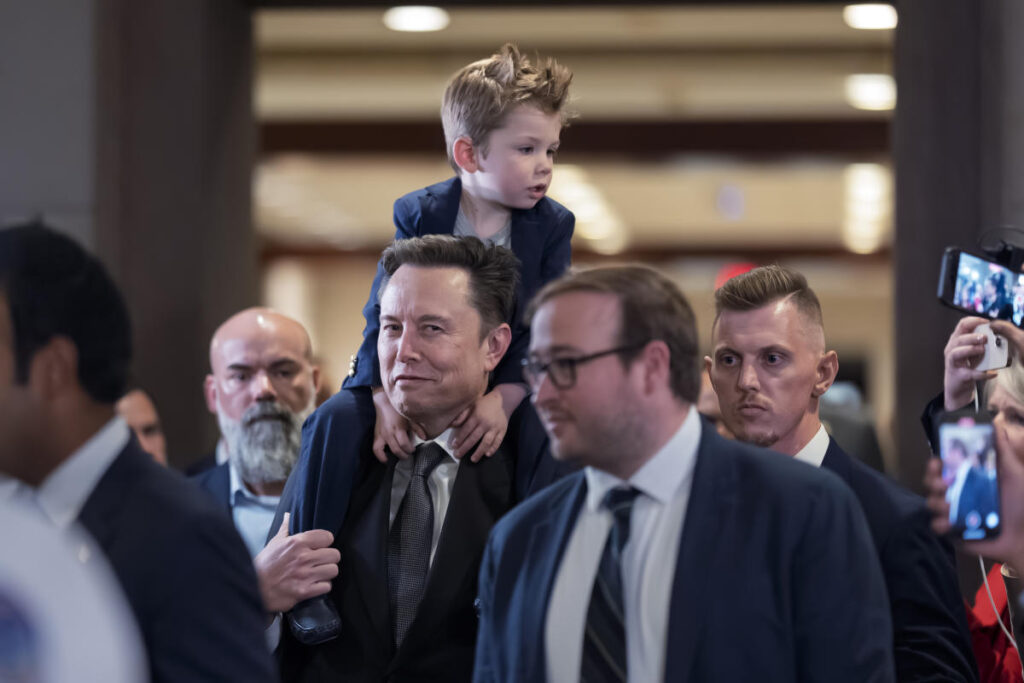Elon Musk has recently made headlines for his significant financial support of a super PAC called RBG PAC, which emerged just weeks before the Nov. 5 election. This political action committee aimed to challenge perceptions of Donald Trump’s views on abortion by aligning them with those of the late Supreme Court Justice Ruth Bader Ginsburg. According to federal campaign finance reports, Musk’s involvement was disclosed only after he made a remarkable contribution of $20.5 million through the “Elon Musk Revocable Trust.” The timing of this donation, closely linked to the PAC’s formation, highlighted Musk’s intent to influence the electoral debate.
In the weeks leading up to the election, the RBG PAC leveraged its funding to launch a targeted advertising campaign. Their ads emphasized Trump’s assertions that he would refrain from signing a nationwide abortion ban, while also highlighting his support for exceptions in cases of rape, incest, and the life of the mother. This strategy was reflective of a broader discourse surrounding abortion rights, an issue that has gained heightened prominence in American politics, especially in light of the 2022 Supreme Court decision that overturned Roe v. Wade. Such action has prompted a raft of conservative states to impose stricter abortion regulations, galvanizing both supporters and opponents of reproductive rights.
Musk’s financial contribution to the PAC was a small portion of the more than $200 million he reportedly spent during the 2024 election cycle, primarily aimed at promoting Trump’s candidacy. This level of financial involvement raises questions about the growing power and influence that affluent individuals are wielding within U.S. politics. Musk’s strategic investments are indicative of the broader trend where wealthy backers are increasingly shaping the political landscape, seeking to secure favorable outcomes for their preferred candidates and policies.
Moreover, Musk’s political engagement is not limited to the realm of campaigning. He has also been active on the ground, participating in high-profile meetings on Capitol Hill, alongside entrepreneur Vivek Ramaswamy. The duo met with lawmakers to discuss Trump’s initiative to restructure the federal government through the Department of Government Efficiency (DOGE), a task force aimed at reducing federal employment and cutting regulatory measures. This initiative, which reflects Trump’s agenda to streamline government operations, underscores Musk and Ramaswamy’s commitment to potentially reshape how federal agencies function, aligning with their broader philosophical views on governance.
In conjunction with his efforts to support Trump, Musk’s super PAC, America PAC, undertook aggressive voter mobilization strategies. They developed messaging campaigns designed to provoke urgency among voters, encapsulated in a warning that lacking participation could lead to a Democratic victory. This initiative was not without controversy; their voter sweepstakes, which offered financial incentives for voter engagement, drew legal scrutiny before a court finally allowed it to proceed.
The intersection of Musk’s wealth, influence, and political ambition illustrates a pivotal moment within American political dynamics, where a single billionaire can drastically sway electoral outcomes and policy discussions. As seen with his contributions to both the RBG PAC and America PAC, Musk is positioning himself as a formidable force in contemporary politics, instrumental in lobbying for radical shifts within government structures and ideologies. His ongoing partnership with Trump and involvement in legislative discussions underscores the rising trend of wealthy individuals playing crucial roles in shaping not only political campaigns but also the broader mechanisms of governance itself.

